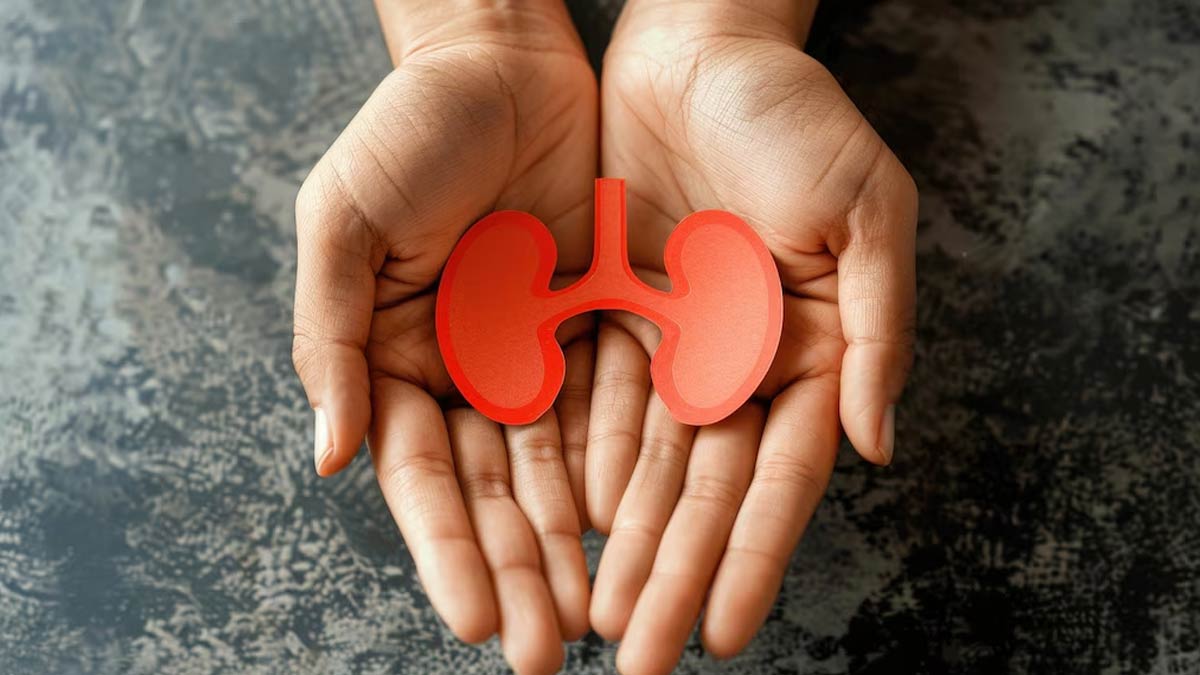
Facing the reality that your child may need a kidney transplant can be one of the most challenging moments as a parent. The worry, uncertainty, and countless questions that arise are entirely natural. However, understanding the process, the benefits and the care required post-transplant can help you navigate this journey with confidence. We spoke to Dr Adittya K Sharma, Senior Director and Head, Urology, Andrology, Kidney Transplant, and Robotic Uro-Oncology, Max Super Specialty Hospital, Gomti Nagar, Lucknow, who explained kidney transplants in children.
Table of Content:-
Understanding the Need for a Kidney Transplant

According to the International Journal of Organ Transplantation Medicine, kidney transplantation is now regarded as the preferred treatment for children with End-Stage Renal Disease (ESRD), as it offers a superior quality of life, enhanced growth and development, and longer patient survival compared to any long-term dialysis method.
“Children may require a kidney transplant due to Chronic Kidney Disease (CKD) or kidney failure, often caused by congenital conditions like obstructive uropathy, focal segmental glomerulosclerosis, or genetic disorders like polycystic kidney disease,” said Dr Sharma.
When the kidneys can no longer perform their vital functions, such as filtering waste and balancing fluids, a transplant becomes necessary to ensure your child's survival and quality of life.
Also Read: Kidney Transplant: Expert Explains This Procedure, Its Importance, Risks, And Complications
The Transplant Process

1. Evaluation and Listing
“The transplant process begins with a thorough evaluation to determine if your child is a suitable candidate for a kidney transplant. This evaluation includes physical exams, blood tests, and imaging studies,” said Dr Sharma. If deemed suitable, your child will be placed on the national transplant waiting list, where they will wait for a compatible donor kidney.
2. Donor Options
Kidneys for transplant can come from either deceased donors or living donors. A living donor, often a family member, can be an excellent option as it typically results in shorter wait times and better outcomes. The compatibility between the donor and the recipient is critical and involves matching blood type, tissue type, and antibody levels.
3. The Transplant Surgery
The transplant surgery itself is a complex procedure, typically lasting 3-4 hours. “During the surgery, the donor's kidney is placed in the lower abdomen, and the blood vessels and ureters are connected to the recipient's body. The native kidneys are usually not removed unless they are causing problems like severe infections,” added Dr Sharma.
Also Read: Diabetes May Cause Kidney Disease: Expert Explains Their Connection And Lists Lifestyle Tips
Post-Transplant Care

1. Immunosuppressive Medications
“After the transplant, your child will need to take immunosuppressive medications to prevent their immune system from rejecting the new kidney. These medications are crucial but require careful monitoring to balance the risk of rejection with the risk of infection,” said Dr Sharma.
2. Regular Follow-ups
Ongoing medical care is vital post-transplant. Your child will need regular check-ups to monitor kidney function, adjust medications, and address any potential complications. Blood tests and urine tests will be routine parts of these follow-ups.
3. Lifestyle Adjustments
While a kidney transplant can significantly improve your child's quality of life, certain lifestyle adjustments are necessary. A balanced diet, regular physical activity, and avoiding exposure to infections are important for maintaining the health of the transplanted kidney.
Bottomline
Dr Sharma concluded, “A kidney transplant can be a life-changing procedure for children with kidney failure. By understanding the process and being prepared for the post-transplant journey, you can help ensure the best possible outcome for your child. Close collaboration with your child’s healthcare team will be key to navigating this complex but rewarding path.”
[Disclaimer: This article contains information provided by an expert and is for informational purposes only. Hence, we advise you to consult your own professional if you are dealing with any health issues to avoid complications.]
Also watch this video
How we keep this article up to date:
We work with experts and keep a close eye on the latest in health and wellness. Whenever there is a new research or helpful information, we update our articles with accurate and useful advice.
Current Version